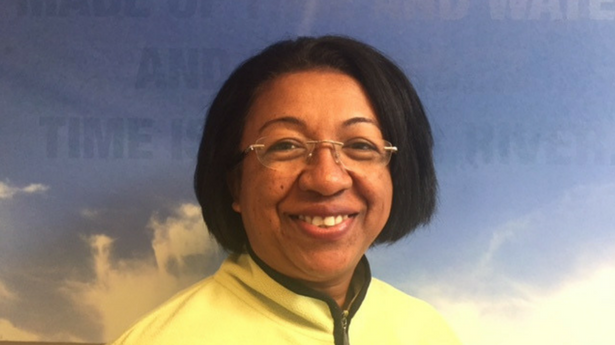An advisor on Global Greengrants’ East Africa Advisory Board, Lalaina Rakotoson is also the founder and Vice President of the Development and Environmental Law Center in Madagascar. She is an environmental justice lawyer and Fulbright scholar with a broad range of experience working on environmental issues that impact communities, including climate change, marine and coastal resources, and environmental democracy.
Lalaina has a deep passion for environmental justice and community empowerment, especially in her home country of Madagascar.
How did you get involved in the environmental movement?
I became interested in the environment because when I was young my parents and I lived near the Ranomafama National Park in Madagascar. I saw the park established in 1991 which led to my interest in how national parks impact local communities, which resulted in my decision to go to law school to help those communities. I saw a big gap in legal knowledge between lawyers and rural people and felt the need to help create laws based around the daily needs of the locals.
Why did you start the Development and Environmental Law Center?
Twenty years ago I founded the Development and Environmental Law Center. The Center is an interdisciplinary team of sociologists, economists, and conservationists with the shared goal of working to promote environmental justice in Madagascar. We recognize the responsibility of local communities to manage their environment and work with them to make a healthy environment a reality.
Recently, the Center was selected to oversee the management of 71,000 hectares of forest in the northwest of Madagascar, including 46,000 hectares of mangrove forest. We’re working with local communities to manage the forests and to build a network of mangrove managers in the area.
What do you see as the most pressing threat to a healthy environment in Madagascar?
Unfortunately, there are many. Gold mining and gemstone mining are threats due to the large number of mineral deposits, but poaching, especially of the endangered Angonoka turtle, is also an issue. The use of slash and burn farming techniques by local communities and deforestation are also concerns.
What do you like most about working with Global Greengrants Fund?
I am very much in favor of community development. Many development projects do not provide funding directly to the community and so I really like the way that Global Greengrants gives funds directly to the communities that need it. For example, one grant that was just awarded was for a small federation of traditional fisherfolk. With help from Global Greengrants, the group will be able to buy small fishing boats which will allow them to expand their fishing areas and sustainably increase their production.
For more information about Lalaina and other advisors in our global network, click here.

